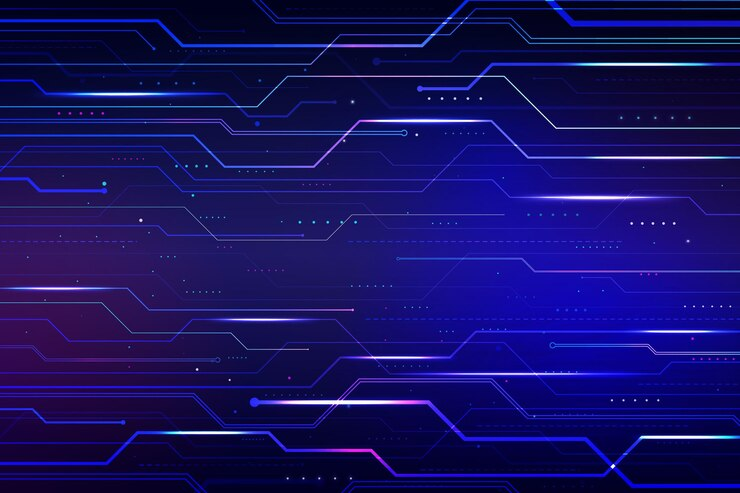New technologies in the rapidly changing world are making revolutions in industries and, at the very least, in everyday life. From self-driving cars on the roads to AI in business, these developments have given new standards of efficiency and convenience. This article looks into how technology is changing five major areas --- automotive, business, healthcare, education, and home living --- to give a picture of what innovation portends for the future.
Developing VIN Decoders: A Modern Technological Breakthrough
Vehicle Identification Number (VIN) decoders represent a significant technological advancement in the automotive industry, revolutionizing the way stakeholders, from buyers to sellers and regulators, interact with vehicle data. As a modern technology, VIN decoders such as abetter.bid/vin-decoder serve as crucial tools for ensuring transparency and accuracy in vehicle transactions and history reporting.
From such simple databases, VIN decoders have evolved to complex algorithms that can throw up a mass of information from the unique 17-character code assigned since 1981 to each vehicle. These VIN decoders analyze every segment of the VIN to show information such as the manufacturer, vehicle type, model, size of the engine, and location. This need has been brought about by problems such as fraud, theft, and misrepresentation in the used car market.
Modern VIN decoders, however, make use of a number of technologies in addition to big data analytics, AI, and machine learning. These technologies help the decoders draw out not only basic vehicle specifications but also collate and analyze data from multiple sources such as insurance claims, repair records, and government databases. This kind of integration will therefore yield an overall vehicle history --- involving accidents, service records, and previous owners --- among other things.
Automotive Innovations: Driving the Future
The automotive industry has also gone through sea changes in the integration of technologies like AI, Internet of Things (IoT), and electric vehicles. Autonomous cars no longer remain a reach or a futuristic word but are definitely in the works. Companies such as Tesla and Waymo are breaking barriers on what vehicles can do without human intervention. Electric vehicles will increasingly become mainstream, legitimately backed by advanced battery technologies and an increase in focussed emphasis toward sustainable methodologies across the world.
If you want to purchase an electric vehicle at reduced prices, visit online auction like abetter.bid, where you will find a car of your choice and budget. Online auto auctions function much the same way as traditional auctions but use digital platforms where individuals can bid on vehicles from their computers or mobile devices. These usually include detailed listings of every vehicle with photos, condition reports, and comprehensive history checks that would, therefore, allow bidders to make very informed decisions from remote locations.
Business: The AI Revolution
Artificial intelligence is changing the face of business. From chatbots replacing customer support to predictive finance analytics, AI is making businesses more productive while allowing for more personalized customer relationships. Big data is being used to inform decisions that spur growth and innovation in a business. Not to mention blockchain technology, providing more secure and transparent transactions into the mix, mainly in financial industries and supply chain management.
Healthcare: Technology for Life
The role of technology has been life-saving in health. Telemedicine, more so during the COVID-19 pandemic, came in to allow patients to have consultations with the doctor even when many miles away. Wearable health devices track vital signs in real time: heart rates, blood sugar levels, and others. This provides important information that indicates and can prevent medical emergencies. Further, AI is used in personalizing patient care by offering more precise diagnoses and bespoke treatment plans, resulting in the rise of a new medical era that is, at one time, inclusive and cutting-edge.
Education: The Digital Classroom
Technology has changed the trajectories of the traditional classroom environment, breaking geographical and socio-economic barriers. E-learning platforms and virtual classrooms open education to all those who have access to the internet. With adaptive learning software, engagement and outcomes are increased by changing the pace of educational materials according to a student's pace and understanding. AI automates administrative tasks, allowing educators to teach more and do less paperwork.
Home Living: Smart and Efficient
Smart home technologies provide convenience and increased security. IoT devices, like smart thermostats and lighting systems, do not just bring comfort to one's home but also hold an opportunity for energy efficiency. From schedules to appliances, voice-activated assistants can make every function easier throughout a given day. Security systems equipped with smart cameras and motion sensors alert homeowners in real time, thus providing peace of mind.
Conclusion
The integration of modern technologies in everyday spheres is not an enhancement exercise for current systems but sets a foundation for a sustainable and innovative future. In the synergy between human needs and technological capabilities, development foreseen ahead promises not only to enhance the quality of life but has a potential to even redefine it. Whether through smarter vehicles, AI-driven business models, advanced healthcare, or interactive educational tools, technology will be the pivotal element. It is all about embracing these changes that define the present progress and future advancements toward entering a world where people are more connected and tech-savvy.
Comments
Loading comments…
